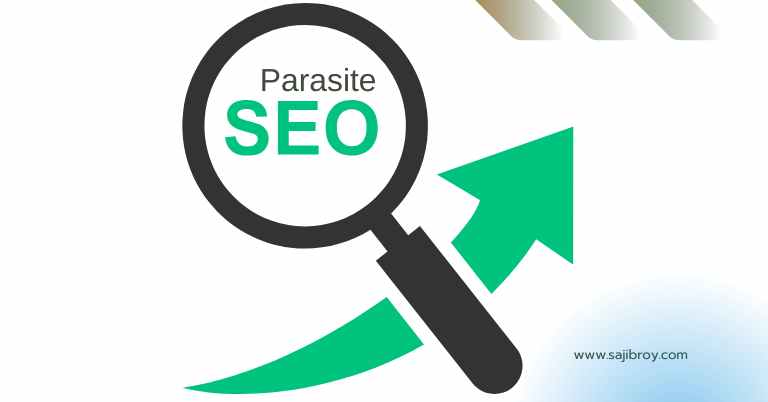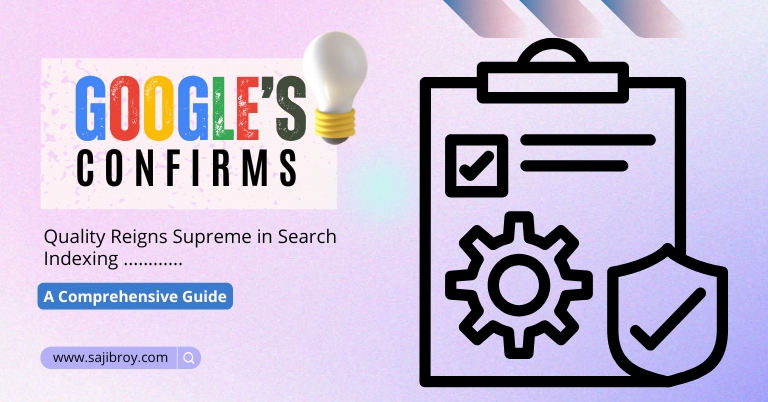To get into data analytics, acquire a strong foundation in programming and statistics. Additionally, pursue relevant certifications and gain practical experience through internships or projects.
By focusing on these areas, you can develop the necessary skills to excel in the field of data analytics. Are you interested in a career that involves extracting valuable insights from raw data to drive informed decision-making? Data analytics is the field for you.
With the increasing demand for professionals who can analyze large datasets and make data-driven recommendations, now is the perfect time to get into data analytics. To embark on this career path, it is essential to build a strong foundation in programming languages such as Python or r, as well as a solid understanding of statistics. Furthermore, pursuing relevant certifications like certified analytics professional (cap) or Microsoft certified: azure data scientist associate can provide you with a competitive edge. Practical experience through internships or projects is also crucial, as it helps you apply your knowledge and showcase your skills to potential employers. Ready to dive into the world of data analytics? Let’s explore this field further.
Let's See the Topic Overview
Introduction To Data Analytics
Looking to break into the field of data analytics? Find step-by-step guidance and expert tips on how to kickstart your career in this fast-growing industry.
The Importance Of Data Analytics In Today’s Digital Age
In this digital age, data analytics has become an essential tool for businesses of all sizes. By harnessing the power of data, organizations can gain valuable insights into various aspects of their operations and make informed decisions. The importance of data analytics can be understood by considering the following key points:
- Enhancing decision-making: Data analytics provides businesses with the ability to make data-driven decisions. By analyzing large volumes of data, patterns, and trends can be identified, enabling organizations to make informed choices that can optimize their processes, improve customer satisfaction, and drive growth.
- Improving operational efficiency: Data analytics helps businesses identify inefficiencies within their operations. By analyzing and understanding data related to workflows, resource allocation, and customer behavior, organizations can streamline processes, reduce costs, and improve overall efficiency.
- Identifying market trends: In today’s competitive landscape, understanding market trends is crucial for businesses. Data analytics enables organizations to analyze market data, identify consumer preferences, and adapt their marketing strategies accordingly. This allows businesses to stay one step ahead of their competitors and tailor their offerings to meet changing market demands.
- Enabling better customer insights: Data analytics provides businesses with valuable insights into customer behavior, preferences, and satisfaction levels. By analyzing customer data, businesses can segment their target audience, personalize marketing campaigns, and deliver a more customized experience. This not only helps in building stronger customer relationships but also fosters customer loyalty and increases sales.
- Harnessing the power of big data: The advent of big data has significantly impacted businesses across industries. With the exponential growth of data generated from various sources, businesses can leverage data analytics to extract meaningful information from this massive volume of data. By harnessing the power of big data, businesses can uncover valuable insights, predict future trends, and drive innovation.
Data analytics plays a crucial role in the digital age by providing businesses with actionable insights that can drive growth, improve operational efficiency, and enhance customer satisfaction. By harnessing the power of data analytics, organizations can gain a competitive edge and adapt to the ever-changing business landscape.
The Role Of Data Analytics Professionals
Data analytics professionals play a pivotal role in the world of data analysis. If you are looking to get into data analytics, it is important to understand the skills, qualifications, and training required to excel in this field.

The Role Of Data Analytics Professionals
Data analytics professionals play a vital role in helping businesses make informed decisions based on data-driven insights. With the increasing importance of data in today’s world, the demand for skilled professionals in this field is on the rise. In this section, we will discuss the various job roles and responsibilities in data analytics, as well as the skills and qualifications required to excel in this field.
Discuss The Various Job Roles And Responsibilities In Data Analytics:
- Data analyst:
- Collect and analyze data to identify trends and patterns.
- Generate reports, visualizations, and dashboards to present findings to stakeholders.
- Identify areas for improvement and make recommendations based on data insights.
- Data scientist:
- Develop and apply advanced statistical and predictive models to solve complex business problems.
- Design experiments and conduct hypothesis testing to identify actionable insights.
- Collaborate with cross-functional teams to drive data-driven decision-making.
- Business intelligence analyst:
- Gather and analyze data from various sources to provide actionable insights to key stakeholders.
- Develop and maintain dashboards and data visualizations for easy data interpretation.
- Identify market trends and business opportunities based on data analysis.
- Data Engineer:
- Build and maintain data pipelines, databases, and systems for efficient data collection and storage.
- Optimize data infrastructure and implement data governance practices.
- Collaborate with data scientists and analysts to ensure data availability and accuracy.
- Machine learning engineer:
- Develop and implement machine learning models and algorithms for data analysis and pattern recognition.
- Train and optimize models for higher accuracy and efficiency.
- Collaborate with cross-functional teams to deploy and integrate machine learning solutions.
Explain The Skills And Qualifications Required To Excel In This Field:
- Strong analytical skills:
- Ability to analyze complex data sets and derive meaningful insights.
- Proficient in statistical analysis and data visualization techniques.
- Programming knowledge:
- Proficiency in programming languages such as Python, r, or SQL.
- Understanding of data manipulation, transformation, and cleaning using programming.
- Business acumen:
- Knowledge of the industry or domain in which data analytics is applied.
- Ability to interpret data in a business context and provide actionable recommendations.
- Data management:
- Familiarity with data management concepts, including data collection, storage, and governance.
- Experience in working with databases, data warehouses, and big data technologies.
- Communication and collaboration:
- Strong verbal and written communication skills to effectively convey data insights.
- Ability to collaborate with cross-functional teams and stakeholders.
- Continuous learning:
- Willingness to stay updated with the latest tools, techniques, and advancements in data analytics.
- Enthusiasm for learning new skills and adapting to evolving technologies.
Data analytics professionals play a crucial role in today’s data-driven world. The varying job roles, responsibilities, and required skills in this field provide opportunities for individuals with diverse backgrounds and interests to contribute and excel. By possessing strong analytical skills, programming knowledge, business acumen, data management expertise, communication skills, and a continuous learning mindset, individuals can unlock exciting opportunities in the field of data analytics.
So, if you’re passionate about working with data and making a significant impact on decision-making processes, data analytics may be the right career path for you.
Getting Started In Data Analytics
Looking to break into the field of data analytics? This guide provides essential tips and advice to help you get started on your journey. Harness the power of data and unlock exciting career opportunities in this rapidly growing industry.

Getting Started In Data Analytics
Data analytics is a rapidly growing field that offers exciting career opportunities for those interested in working with data. Whether you have a background in computer science or are looking to switch careers, getting started in data analytics can be a rewarding journey.
In this section, we will share practical steps to begin a career in data analytics, discuss educational paths and certifications, and highlight the importance of programming and statistics in developing a strong foundation.
Steps To Begin A Career In Data Analytics:
- Gain a solid understanding of the field: Start by researching what data analytics entails and the skills required to excel in this field. Familiarize yourself with the types of data analytics jobs available and the industries that require data analysis.
- Acquire the necessary education and training: Pursue a bachelor’s or master’s degree in a relevant field such as computer science, statistics, or mathematics. Many universities offer data analytics programs that provide specialized training in data analysis techniques, programming languages, and statistical modeling.
- Develop programming and coding skills: Programming languages like Python, r, and SQL are essential tools for data analysts. Invest time in learning these languages and understanding how they are used in data analysis. Online tutorials and coding boot camps can be valuable resources for acquiring these skills.
- Expand your knowledge of statistics: Statistics is the backbone of data analytics. Develop a strong understanding of statistical concepts such as hypothesis testing, regression analysis, and data visualization techniques. Familiarize yourself with statistical software packages like spss or sas.
- Gain practical experience: Apply your skills through real-world projects and internships. This hands-on experience will not only enhance your understanding of data analytics but also provide you with valuable industry exposure. Consider joining online communities or participating in Kaggle competitions to collaborate with other data analysts and work on challenging projects.
Educational Paths And Certifications:
- Academic programs: Pursuing a degree in data analytics, computer science, or a related field can provide you with a comprehensive education in data analysis techniques, statistical modeling, and programming languages. Universities often offer specialized data analytics programs at both the undergraduate and graduate levels.
- Online courses: Many reputable platforms offer online courses specifically designed for data analytics. These courses often provide flexibility in terms of timing and allow you to learn at your own pace. Some examples of popular online learning platforms for data analytics include Coursera, EDX, and Udacity.
- Professional certifications: Obtaining industry-recognized certifications can significantly enhance your credibility as a data analyst. Certifications such as certified analytics professional (cap), Microsoft certified: data analyst associate and google analytics individual qualification can validate your skills and demonstrate your commitment to professional growth.
The Importance Of Programming And Statistics:
- Programming skills: Proficiency in programming languages like Python, r, and SQL is crucial for data analysts. These languages enable you to manipulate and analyze data efficiently, automate tasks, and develop data-driven solutions. Having a strong programming foundation allows you to work with large datasets and apply complex algorithms.
- Statistical knowledge: An understanding of statistics is essential for interpreting data and drawing meaningful insights. Statistical techniques empower data analysts to identify patterns, make predictions, and validate hypotheses. A solid grasp of statistical concepts enables you to effectively communicate the significance and limitations of your findings.
Getting started in data analytics requires a blend of education, practical experience, and ongoing skill development. By following these steps and acquiring a strong foundation in programming and statistics, you can embark on a successful career in data analytics.
Choosing The Right Analytics Tools
Choosing the right analytics tools is crucial for anyone looking to get into data analytics. With a wide range of options available, it is important to consider factors such as functionality, ease of use, and compatibility with your specific needs.
Take the time to research and compare different tools to find the best fit for your analytics journey.
Choosing The Right Analytics Tools
If you’re looking to embark on a career in data analytics, one crucial aspect to consider is the selection of the right analytics tools. With so many options available, it can be overwhelming to determine which ones are the most suitable for your needs and goals.
In this section, we’ll highlight some popular data analytics tools used in the industry and discuss the pros and cons of different tools such as Python, r, and Tableau. Additionally, we’ll provide some tips on selecting the appropriate tools based on specific needs and goals.
Popular Data Analytics Tools In The Industry:
- Python:
- A versatile programming language with a vast array of libraries and tools for data analysis
- Offers diverse functionalities, such as data manipulation, statistical modeling, and machine learning
- Python has a large and active community, making it easy to find resources and support for learning and troubleshooting
- R:
- Specifically designed for statistical analysis and graphics
- Popular among statisticians and researchers due to its extensive range of statistical packages
- Enables the creation of visually appealing and customizable data visualizations
- Tableau:
- A powerful and user-friendly data visualization tool
- Provides intuitive drag-and-drop functionality for creating interactive dashboards and reports
- Suitable for business professionals who want to explore, analyze, and present data without extensive coding skills
Pros And Cons Of Different Tools:
Python:
- Pros:
- High versatility allows for a wide range of data analysis tasks
- Python’s popularity ensures plenty of learning resources and community support
- Seamless integration with other technologies and databases
- Cons:
- Steeper learning curve compared to more specialized tools
- Execution speed may be slower for computationally intensive tasks
- Limited interactive visualization capabilities compared to dedicated visualization tools
R:
- Pros:
- Extensive collection of statistical packages for in-depth analysis
- Superior statistical modeling capabilities compared to other tools
- Excellent data visualization options, especially for academic and research purposes
- Cons:
- Syntax and learning curve may be challenging for beginners
- Limited integration capabilities with other programming languages
- R’s performance may lag behind when handling large datasets
Tableau:
- Pros:
- User-friendly interface with drag-and-drop functionality
- Quick and easy creation of interactive visualizations and dashboards
- Seamless integration with multiple data sources
- Cons:
- Limited in terms of advanced analytics and statistical modeling
- Pricing can be a barrier for individuals or small organizations
- Customization options may be limited compared to fully coding-based approaches
Selecting The Appropriate Tools:
When selecting the appropriate tools for your data analytics journey, keep the following tips in mind:
- Define your specific needs and goals: Consider the type of data analysis you will be performing and the specific tasks you need to accomplish.
- Consider your existing skill set: Assess your programming and coding knowledge to determine which tools align with your current abilities.
- Prioritize usability: Evaluate how user-friendly the tool is and whether it suits your preferred way of working with data.
- Research resources and community support: Look for tools that have an active community and extensive learning resources available.
- Seek scalability and flexibility: Consider the potential growth of your analytics work and choose tools that can adapt to your expanding needs.
By carefully considering these factors, you can make an informed decision and choose the right analytics tools that will empower you to excel in your data analytics endeavors.
Building A Strong Data Analytics Portfolio
Discover the key steps to break into the field of data analytics and build a robust portfolio that showcases your skills and expertise. Master the necessary tools and techniques to excel in this rapidly growing industry.

Building A Strong Data Analytics Portfolio
In the field of data analytics, having a well-rounded portfolio is crucial for showcasing your skills, experience, and abilities to prospective employers or clients. A portfolio not only demonstrates your expertise but also gives you a competitive edge in the job market.
Here are some strategies that can help you build a strong data analytics portfolio:
Acquire Hands-On Experience Through Personal Projects And Internships:
- Engage in personal projects: Undertaking personal projects is a great way to gain practical experience in data analytics. Choose projects that align with your interests and allow you to apply various techniques and tools. For example:
- Develop a predictive model to forecast sales trends.
- Analyze customer data to identify patterns and make recommendations for targeted marketing campaigns.
- Seek internships: Internships provide valuable real-world experience and a chance to work on challenging data analytics projects. Look for internships at companies that specialize in data analysis or have internal data analytics teams. Some strategies to consider include:
- Reach out to local businesses or startups that may be open to offering internships.
- Join online platforms or job boards dedicated to internships in data analytics.
Showcasing Analysis And Results In Your Portfolio:
- Explain the process: When including projects in your portfolio, make sure to provide a clear explanation of the data analysis process you followed. This should include steps such as data collection, cleaning, exploration, modeling, and interpretation of results. By demonstrating your methodology, you can show your ability to solve complex problems and produce actionable insights.
- Highlight key findings: Emphasize the most significant findings from your analysis in your portfolio. This helps potential employers or clients understand the value you can bring to their organization. Consider including visuals such as charts or graphs to make the results more visually appealing and easier to comprehend.
- Discuss the impact: Connect your analysis to the broader context by discussing the impact it had on the business or organization. Highlight any actionable recommendations you made based on your findings. This demonstrates your ability to translate data into meaningful insights and drive decision-making processes.
Building a strong data analytics portfolio requires a combination of hands-on experience, personal projects, and showcasing your analysis and results. By following these strategies, you can demonstrate your skills and expertise in the field of data analytics, making yourself a desirable candidate for job opportunities or freelance work.
Enhancing Data Analytics Skills
Enhance your data analytics skills by learning how to get into the field. Discover the secrets to starting a career in data analytics and develop the necessary skills to excel in this rapidly growing industry.
Enhancing Data Analytics Skills:
To excel in the field of data analytics, it is crucial to continuously enhance your skills and stay updated with the latest trends and technologies. The rapidly evolving nature of this field demands a proactive approach toward learning and professional development.
By taking advantage of various resources, platforms, and networking opportunities, you can significantly boost your data analytics skills and stay ahead of the curve. Here are some effective strategies to accomplish this:
Provide Resources And Platforms For Continuous Learning And Skill Development:
- Online learning platforms: Utilize online learning platforms such as Coursera, EDX, and Udemy to access a wide range of data analytics courses. These platforms offer in-depth and comprehensive training programs that cover various aspects of the field.
- Blogs and websites: Follow influential data analytics blogs and websites data science, KD nuggets, and medium to stay updated with the latest industry trends, techniques, and case studies.
- Youtube channels: Subscribe to youtube channels like Datacamp, freecodecamp, and Simplilearn, which offer informative tutorial videos and webinars on different data analytics topics.
- Open-source projects and datasets: Contribute to open-source projects and explore public datasets to gain hands-on experience and practice your data analytics skills.
Discuss The Importance Of Staying Updated With The Latest Trends And Technologies In Data Analytics:
- Keeping up with the latest trends and technologies in data analytics is of utmost importance to remain competitive in the industry.
- Regularly reading industry publications, attending webinars, and following thought leaders will help you stay informed about emerging tools, techniques, and best practices.
- Continuous learning and adaptation enable you to implement innovative strategies, improve your problem-solving abilities, and deliver valuable insights to your organization or clients.
Highlight The Benefits Of Attending Conferences, Webinars, And Networking Events:
- Conferences: Attending data analytics conferences provides an excellent opportunity to learn from industry experts, gain insights into groundbreaking research, and network with like-minded professionals.
- Webinars: Participating in webinars allows you to learn from experienced practitioners and gain exposure to different data analytics approaches and methodologies.
- Networking events: Networking events provide a platform for professionals to connect with peers, potential employers, and mentors who can offer valuable guidance and support.
Remember, investing in your data analytics skills is an ongoing process that requires dedication and a thirst for knowledge. By utilizing various resources, staying updated with the latest trends, and actively participating in networking events, you can enhance your data analytics skills and open new doors to exciting career opportunities.
Harnessing The Power Of Big Data
Discover the secrets to entering the world of data analytics and unlock the potential of big data. Learn how to harness this powerful tool and gain the skills needed to excel in the data-driven industry.

Harnessing The Power Of Big Data
In the era of rapid digital transformation, organizations are increasingly leveraging big data to drive decision-making and propel business growth. Big data refers to the massive volumes of structured and unstructured information generated from various sources such as customer interactions, social media, and machine sensors.
Harnessing the power of big data enables organizations to gain valuable insights, enhance operational efficiency, and unlock new opportunities for innovation.
Explain How Organizations Leverage Big Data For Decision-Making And Business Growth:
- Predictive analytics: By analyzing past and real-time data, organizations can predict future trends, customer behavior, and market demands. This enables them to make data-driven decisions, optimize strategies, and stay ahead of the competition.
- Personalization: Big data allows organizations to understand individual customer preferences and deliver personalized experiences. By tailoring products, services, and marketing campaigns to specific customer segments, organizations can increase customer satisfaction and foster loyalty.
- Operational efficiency: Big data analytics helps organizations optimize their operations by identifying bottlenecks, streamlining processes, and reducing costs. By understanding data patterns, organizations can make informed decisions to improve efficiency and productivity.
- Risk management: Big data analytics enables organizations to identify potential risks and mitigate them proactively. By analyzing historical data, organizations can anticipate and prevent fraud, cybersecurity threats, and operational risks, thus safeguarding business interests.
Discuss The Challenges And Opportunities In Handling Large Volumes Of Data:
- Data quality: Managing and ensuring the quality of large volumes of data can be challenging. Organizations need to ensure the accuracy, completeness, and consistency of the data to make reliable decisions. Data cleansing and data governance practices are essential to maintain data integrity.
- Scalability: As the volume of data increases, organizations face challenges in scaling their infrastructure and systems to handle the load. Adopting scalable technologies and cloud-based solutions can help organizations manage and process large volumes of data efficiently.
- Data privacy and security: With the proliferation of data, organizations must address privacy concerns and comply with data protection regulations. Safeguarding sensitive customer information and implementing robust security measures are crucial in maintaining trust and avoiding data breaches.
- Data analysis skills: Analyzing big data requires advanced analytical skills and expertise. Organizations need to invest in training their workforce or hiring data analysts who can effectively interpret and derive meaningful insights from complex datasets.
Provide Insights On The Tools And Techniques Used For Analyzing Big Data:
- Data visualization: Tools like Tableau and power bi enable organizations to visualize and explore big data through interactive dashboards and charts. Visual representation of data simplifies complex information and aids in better decision-making.
- Machine learning: Machine learning algorithms can analyze large volumes of data and identify patterns, trends, and anomalies. Techniques such as supervised learning, unsupervised learning, and reinforcement learning help extract valuable insights and make predictions.
- Hadoop: Hadoop is an open-source framework that allows distributed processing of large datasets across clusters of computers. It enables organizations to store and process massive volumes of structured and unstructured data efficiently, leveraging the power of parallel computing.
- Natural language processing (NLP): Nlp techniques enable organizations to analyze unstructured text data such as customer reviews, social media posts, and emails. By extracting sentiments, identifying key topics, and performing text classification, organizations can derive actionable insights from textual data.
- Data mining: Data mining techniques help organizations discover hidden patterns and relationships within large datasets. By applying algorithms such as clustering, association rules, and regression analysis, organizations can identify valuable information and drive decision-making.
Organizations today have access to vast amounts of data, and harnessing its power is crucial for decision-making and business growth. While there are challenges in handling large volumes of data, leveraging the right tools and techniques allows organizations to turn big data into actionable insights and gain a competitive advantage in the digital landscape.
Specializing In Data Analytics
Specializing in data analytics, this subheading delves into the topic of how to enter the field. Covering essential steps and tips, it provides a comprehensive guide for those aspiring to pursue a career in data analytics.
Specializing In Data Analytics
Data analytics is a fast-growing field with a wide range of opportunities. If you’re interested in pursuing a career in data analytics, specializing in a particular domain or industry can give you a competitive edge and open up even more doors.
In this section, we will explore different domains and industries that require specialized data analytics skills, discuss the benefits of becoming a domain expert in areas such as marketing analytics or healthcare analytics, and provide tips on how to develop expertise in a specific niche within data analytics.
Explore Different Domains And Industries That Require Specialized Data Analytics Skills:
- Marketing analytics: In the age of digital marketing, companies rely heavily on data to make informed decisions. By specializing in marketing analytics, you can help businesses optimize their marketing strategies, identify target audiences, and measure the success of their campaigns.
- Healthcare analytics: The healthcare industry is becoming increasingly data-driven, with a focus on improving patient care and outcomes. By specializing in healthcare analytics, you can help healthcare organizations analyze large datasets to identify patterns, improve operational efficiency, and make evidence-based decisions.
- Finance analytics: Financial institutions rely on data analytics to manage risk, detect fraudulent activities, and make strategic investment decisions. By specializing in finance analytics, you can help financial organizations leverage data to improve decision-making and drive business growth.
- E-commerce analytics: With the rise of e-commerce, businesses need to understand customer behavior and optimize their online platforms. By specializing in e-commerce analytics, you can help companies analyze customer data, improve user experience, and increase conversion rates.
Discuss The Benefits Of Becoming A Domain Expert In Areas Such As Marketing Analytics Or Healthcare Analytics:
- Increased job opportunities: By specializing in a specific domain, you become a sought-after professional in that industry. Companies are often willing to pay a premium for experts who can effectively analyze industry-specific data and provide valuable insights.
- Advanced skill set: Specializing in a specific domain allows you to develop a deep understanding of the industry and its challenges. This expertise can help you develop advanced analytical skills and domain-specific knowledge that sets you apart from general data analytics professionals.
- Impactful contributions: By focusing on a particular domain, you can make a significant impact within that industry. Your insights and recommendations can directly influence business strategies, improve decision-making processes, and drive positive outcomes.
Provide Tips On How To Develop Expertise In A Specific Niche Within Data Analytics:
- Research and continuous learning: Stay updated with the latest trends, techniques, and tools in your chosen domain. Read industry publications, attend webinars and workshops, and engage in online communities to expand your knowledge.
- Hands-on experience: Apply your learning by working on real-world projects within your chosen domain. Gain practical experience by collaborating with professionals in the field, participating in internships, or contributing to open-source projects.
- Networking: Build relationships with industry professionals, attend conferences, and join relevant professional groups. Networking can provide valuable insights, mentorship opportunities, and potential job opportunities within your chosen niche.
- Specialized certifications: Consider pursuing certifications that are specific to your chosen domain. These certifications can demonstrate your expertise and enhance your credibility in the industry.
- Collaborate with domain experts: Seek opportunities to collaborate with professionals who are already established in your chosen domain. Learn from their experiences, ask for feedback on your work, and leverage their expertise to further develop your skills.
By specializing in a specific domain within data analytics, you can position yourself as an expert and unlock exciting career opportunities. Whether it’s marketing analytics, healthcare analytics, or any other industry, developing expertise in a niche can set you apart and help you thrive in the field of data analytics.
Career Opportunities In Data Analytics
Explore the vast career opportunities in data analytics and discover how to enter this field. Gain insights and guidance on breaking into data analytics and advancing your career in this rapidly-growing industry.
Career Opportunities In Data Analytics
In today’s data-driven world, the field of data analytics offers a plethora of exciting career opportunities. From healthcare to e-commerce, various industries rely on data analytics professionals to gather insights and make informed decisions. Let’s delve into the growing demand for data analytics professionals, the salary potential and career growth opportunities in the field, and how you can stand out in the job market to secure rewarding data analytics roles.
Growing Demand For Data Analytics Professionals:
- Industries across the board are increasingly recognizing the value of data analytics and are actively seeking professionals in this field.
- With advancements in technology and the abundance of digital data, businesses need experts who can make sense of the vast amount of information available.
- The demand for data analytics professionals is particularly high in sectors such as finance, marketing, healthcare, and technology.
- This growing demand ensures numerous job openings and career opportunities for those looking to pursue a career in data analytics.
Salary Potential And Career Growth:
- Data analytics professionals enjoy competitive salaries, with the potential for significant growth as they gain experience and expertise.
- Salaries for entry-level data analysts can range from around $50,000 to $70,000 per year, depending on factors such as location and industry.
- As professionals progress in their careers and acquire specialized skills, they can earn six-figure salaries and even more in management or leadership positions.
- The constantly evolving nature of the field ensures continuous learning and opportunities for career growth.
How To Stand Out In The Job Market:
- Continuously upgrade your skills and stay abreast of the latest tools, technologies, and methodologies used in data analytics.
- Gain practical experience by working on real-world projects or participating in internships to showcase your abilities to potential employers.
- Obtain relevant certifications in areas such as data analysis, data visualization, or machine learning, which can enhance your credibility in the job market.
- Networking is crucial in the data analytics industry. Attend industry events, join professional organizations, and connect with experts in the field to expand your professional network.
- Develop a strong portfolio of your data analytics projects and highlight the impact and insights generated.
- Improve your communication and storytelling skills to effectively communicate complex data analysis findings to non-technical stakeholders.
By emphasizing the growing demand for data analytics professionals, discussing the salary potential and career growth opportunities, and providing insights on how to stand out in the job market, you can position yourself for a successful and fulfilling career in data analytics.
So go ahead, equip yourself with the necessary skills, and take advantage of the immense opportunities that await you.
Networking And Building Professional Connections
Networking and building professional connections are essential steps to break into the field of data analytics. By attending industry events, joining online communities, and reaching out to professionals in the field, you can expand your network and discover new opportunities in the world of data analytics.
Networking And Building Professional Connections
Networking is an essential aspect of getting into the data analytics industry as it allows you to connect with like-minded professionals, stay updated on industry trends, and create opportunities for career growth. Whether it’s attending networking events, joining forums and online communities, or leveraging social media platforms, building a strong professional network can greatly enhance your chances of success in data analytics.

Here are some strategies and benefits to consider:
Benefits Of Networking Events, Forums, And Online Communities
Networking events, forums, and online communities provide valuable benefits for aspiring data analysts. Here’s why you should consider participating in these activities:
- Knowledge sharing: By engaging with industry professionals and experts, you can gain insights into the latest trends, tools, and techniques in data analytics. This knowledge-sharing fosters professional growth and keeps you up to date with the advancements in the field.
- Opportunity for collaboration: Networking events, forums, and online communities offer opportunities for collaboration and partnership in data analytics projects. Working with others allows you to leverage different perspectives, knowledge, and skills, leading to more diverse and innovative solutions.
- Building a reputation: Active participation in networking events, forums, and online communities helps you establish yourself as a knowledgeable and trustworthy professional in the data analytics industry. As you contribute valuable insights and participate in discussions, you enhance your reputation and increase your visibility to potential employers or clients.
Tips For Leveraging Social Media Platforms
With the ubiquity of social media platforms, it becomes crucial to leverage them effectively for networking and job opportunities. Here are some tips to make the most out of social media for building connections in the data analytics industry:
- Optimize your profiles: Ensure that your social media profiles, especially on platforms like LinkedIn and Twitter, showcase your expertise and highlight your experiences in data analytics. Use relevant keywords and industry-specific language to make your profiles more discoverable to potential connections.
- Engage in industry conversations: Participate in data analytics-related discussions, join relevant groups, and follow influencers and companies in the industry. By actively engaging in conversations, sharing insights, and providing valuable input, you can attract the attention of industry professionals and expand your network.
- Share relevant content: Demonstrate your knowledge and expertise by sharing informative and relevant content related to data analytics. By consistently sharing valuable insights, articles, and industry news, you establish yourself as a thought leader and attract like-minded professionals to connect with you.
- Connect with peers and experts: Actively seek out and connect with peers, mentors, and industry experts in the data analytics field. Engage in meaningful conversations, ask questions, and initiate discussions to build relationships and expand your network.
- Utilize direct messaging: Harness the power of direct messaging to establish one-to-one connections with professionals you admire or want to learn from. Sending a personalized and genuine message can break the ice and lead to valuable connections and mentorship opportunities.
Building a strong professional network is essential for anyone aspiring to get into data analytics. By attending networking events, joining forums and online communities, and leveraging social media platforms effectively, you can connect with like-minded professionals, gain industry insights, and create valuable opportunities for career growth.
Embrace these strategies, engage with others, and make meaningful connections to pave your path to success in the data analytics industry.
Conclusion
Discover how to break into the field of data analytics and start your career in this rapidly growing industry. Uncover the essential steps and skills required to succeed in data analytics.
Recap The Key Points Discussed In The Article:
- Data analytics is an increasingly in-demand field that offers exciting career prospects and opportunities for growth.
- The first step to getting into data analytics is to acquire the necessary knowledge and skills. This can be done through a degree in data analytics, business intelligence, statistics, or a related field.
- Building a strong foundation in mathematics, statistics, and programming is crucial for success in data analytics.
- Taking online courses or attending workshops can also help individuals gain the necessary technical skills.
- Hands-on experience through internships or working on real-world projects is invaluable in developing practical skills and understanding industry best practices.
- Networking with professionals in the field of data analytics can provide valuable insights, mentorship, and job opportunities.
- Creating a strong online presence through showcasing skills on platforms like GitHub or Kaggle can impress potential employers.
- Continuous learning and keeping up with the latest advancements in the field are essential to stay competitive in the ever-evolving world of data analytics.
Encourage Readers To Take Action And Pursue A Career In Data Analytics:
- Data analytics offers a wide range of career options, from becoming a data analyst to a data scientist or a business intelligence analyst.
- By pursuing a career in data analytics, individuals can have a significant impact on businesses and industries by uncovering actionable insights from raw data.
- Data analytics professionals are in high demand across various sectors, including finance, healthcare, marketing, and technology.
- The field of data analytics promises challenging and intellectually stimulating work, providing individuals with the opportunity to solve complex problems and make data-driven decisions.
- Pursuing a career in data analytics can also lead to attractive salary packages and advancement opportunities.
Highlight The Immense Potential And Opportunities In The Field Of Data Analytics:
- Data is increasingly being recognized as a valuable asset and organizations are investing heavily in data analytics to gain a competitive advantage.
- The rapid growth of big data technology and the proliferation of digital platforms have further fueled the need for skilled data analytics professionals.
- The field of data analytics is constantly evolving, with new tools and techniques emerging regularly. This presents a continuous learning and growth opportunity for individuals interested in the field.
- With the increasing availability of data, there is a growing demand for professionals who can analyze and make sense of it to drive business strategies and decision-making.
- Data analytics has a global reach, offering opportunities to work with both local and international organizations.
Getting into data analytics can be an exciting and rewarding career choice. By acquiring the necessary skills, gaining practical experience, networking, and staying up-to-date with the latest trends, individuals can unlock a world of opportunities in this rapidly growing field.
So, if you’re passionate about data and love solving complex problems, take action and pursue a career in data analytics today!
Frequently Asked Questions On How To Get Into Data Analytics?
How To Start A Career In Data Analytics?
To start a career in data analytics, you can begin by acquiring relevant skills such as statistical analysis, data visualization, and programming languages like Python and r. additionally, gaining hands-on experience through internships or online projects can greatly enhance your chances of entering the field.
What Qualifications Do You Need For Data Analytics?
While a specific degree in data analytics is not always required, a background in mathematics, statistics, or computer science can be beneficial. Strong analytical and problem-solving skills, as well as proficiency in programming languages like SQL, are also essential for a successful career in data analytics.
What Industries Hire Data Analysts?
Data analysts are in high demand across various industries, including finance, healthcare, e-commerce, and technology. Companies in these sectors rely on data to make informed decisions, improve customer experiences, and drive business growth. The versatility of data analytics makes it a sought-after skill set in today’s job market.
How Do Data Analysts Help Businesses?
Data analysts play a key role in helping businesses make data-driven decisions. They analyze large datasets, identify patterns, and extract valuable insights. By providing actionable recommendations and predictions, data analysts help companies optimize processes, improve efficiency, and gain a competitive edge in the market.
Their contributions have a direct impact on business outcomes.
Conclusion
To sum up, embarking on a career in data analytics can be both exciting and beneficial. By following the steps outlined in this blog post, you can lay a strong foundation for success in this field. Remember to prioritize gaining relevant skills and knowledge through coursework, certifications, and practical experience.
Additionally, networking with industry professionals and staying updated on the latest trends and tools will give you a competitive edge. With the increasing demand for data professionals across industries, there are abundant opportunities to explore and grow in the field of data analytics.
So, don’t hesitate to take the leap and start your journey toward a rewarding career in data analytics. Good luck!



![6-Month Local SEO Plan [Download Your Complete Proposal Template]](https://www.sajibroy.com/wp-content/uploads/2025/01/6-Month-Local-SEO-Plan-Download-Your-Complete-Proposal-Template.jpg)








